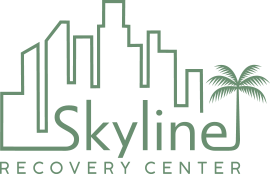Alcohol use disorder (AUD) is a complex and challenging condition that affects millions of individuals and families worldwide.
This highlights the significant treatment gap and the importance of accessible, comprehensive care.
Given the potential risks and complications associated with alcohol withdrawal, medical supervision and support are essential during the detox process.
Medical alcohol detox provides a safe, structured environment where individuals can receive around-the-clock monitoring, symptom management, and medication-assisted treatment when necessary.
Medical alcohol detox is a supervised process that utilizes medications to manage withdrawal symptoms and ensure safety during alcohol cessation.
When an individual with alcohol dependence suddenly stops drinking, they may experience a range of uncomfortable and potentially dangerous withdrawal symptoms, including:
As the body adjusts to the absence of alcohol, individuals may experience tremors or shaking in their hands, arms, legs, or even their whole body. These tremors can range from mild to severe and may be accompanied by a feeling of restlessness or agitation.
Alcohol withdrawal can cause significant emotional distress, leading to heightened anxiety, nervousness, and irritability. Individuals may feel on edge, easily frustrated, or even experience panic attacks during the detox process.
Gastrointestinal distress is a common symptom of alcohol withdrawal. Nausea, vomiting, and diarrhea can occur as the body works to eliminate toxins and adjust to the absence of alcohol. These symptoms can lead to dehydration if not properly managed.
As the body goes through withdrawal, individuals may experience throbbing headaches and excessive sweating. These symptoms are often accompanied by a rapid heartbeat and increased blood pressure, which can be uncomfortable and distressing.
Alcohol withdrawal can significantly disrupt sleep patterns, leading to insomnia, difficulty falling or staying asleep, and restlessness. Individuals may find themselves feeling fatigued yet unable to rest, which can exacerbate other withdrawal symptoms.
These severe symptoms require immediate medical attention and close monitoring to ensure the individual’s safety.
The severity and duration of alcohol withdrawal symptoms can vary depending on factors such as the length and intensity of an individual’s alcohol use, overall health, and the presence of co-occurring medical or mental health conditions.
To alleviate these symptoms and prevent complications, medical professionals may prescribe various medications during the detox process.
Common medications used in medical alcohol detox include:
Benzodiazepines work by binding to specific receptors in the brain, resulting in a calming effect that can alleviate the psychological and physical distress associated with alcohol withdrawal.
Additional medications may be prescribed during medical alcohol detox, such as anti-nausea drugs for gastrointestinal distress and vitamins to address nutritional deficiencies common in alcohol use disorder.
Other supportive medications may include folic acid to support red blood cell production and multivitamins to address general nutritional deficits.
The specific medications and dosages used in medical alcohol detox will vary based on individual factors, such as the severity of withdrawal symptoms, medical history, and any co-occurring mental health conditions.
Our experienced medical team at Skyline Recovery Center works closely with each client to develop a personalized treatment plan that addresses their unique needs and goals, ensuring a safe and comfortable detox process tailored to their specific situation.
Medical alcohol detox can occur in various treatment settings, depending on the individual’s needs and the severity of their alcohol use disorder.
These settings may include:
Inpatient detox provides 24/7 medical supervision and support in a structured, residential setting. This option is often recommended for individuals with severe alcohol dependence or those with co-occurring medical or mental health conditions.
Inpatient detox facilities offer a safe and controlled environment where clients can focus solely on their recovery without the distractions or triggers of everyday life. The around-the-clock care provided by medical professionals ensures that withdrawal symptoms are properly managed and any complications are addressed promptly.
Additionally, inpatient detox facilities often provide a range of therapeutic activities and support services, such as individual and group therapy, to help clients begin their journey towards long-term recovery.
Outpatient detox programs allow clients to maintain some level of normalcy in their daily lives, such as attending work or school, while still receiving the necessary medical support and monitoring.
These programs typically involve regular check-ins with healthcare providers, who assess withdrawal symptoms, adjust medications as needed, and provide guidance on coping strategies and relapse prevention.
Outpatient detox can be a good fit for individuals with a strong support system at home and a high level of motivation to achieve sobriety.
Integrated treatment centers, like Skyline Recovery Center, offer a continuum of care that includes medical detox services as well as ongoing addiction treatment and support.
This approach ensures a seamless transition from detox to long-term recovery. Integrated treatment centers provide a comprehensive range of services, including medical detox, individual and group therapy, family counseling, and aftercare planning.
By addressing both the physical and psychological aspects of addiction within a single facility, integrated treatment centers can help clients build a strong foundation for lasting recovery.
The continuity of care provided by these centers allows for a more personalized and cohesive treatment experience, as clients work with a consistent team of professionals who are familiar with their unique needs and goals.
Accessing appropriate treatment resources is crucial for individuals seeking medical alcohol detox. This may involve reaching out to medical professionals, addiction specialists, or comprehensive treatment programs like Skyline Recovery Center.
We understand that seeking help for alcohol addiction can be a daunting and overwhelming process, which is why we strive to make the admissions process as simple and stress-free as possible.
Our experienced admissions coordinators are available 24/7 to answer questions, provide guidance, and help individuals take the first step towards a healthier, more fulfilling life free from alcohol dependence.
With the right support, the sky’s the limit. We’re here to help you achieve lasting well-being.
At Skyline Recovery Center, we offer a comprehensive continuum of care for individuals struggling with alcohol use disorder.
While we do not provide on-site medical detox services, we work closely with trusted detox facilities to ensure our clients receive the care and support they need during this critical phase of recovery.
Once an individual has completed medical alcohol detox, they can seamlessly transition to one of our outpatient treatment programs, which include:
At Skyline Recovery Center, we believe in a collaborative approach to care delivery. Our team works closely with clients, families, and other treatment providers to develop personalized treatment plans that address each individual’s unique needs, preferences, and goals.
We prioritize evidence-based practices, such as cognitive-behavioral therapy (CBT), dialectical behavior therapy (DBT), and motivational interviewing (MI), to help clients develop the skills and strategies necessary for long-term recovery.
Our commitment to comprehensive care extends beyond our own programs. We recognize the importance of connecting individuals with appropriate detox facilities and resources for medical alcohol detox, ensuring a seamless transition and continuity of care throughout the recovery process.
By fostering strong partnerships with trusted detox providers, we aim to provide our clients with the highest quality care and support at every stage of their journey.
At Skyline Recovery Center, we understand the importance of this process and are dedicated to connecting individuals with the resources and support they need to achieve lasting sobriety.





